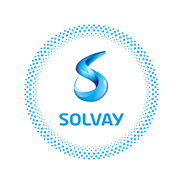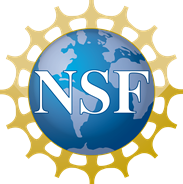
November 26 - December 1, 2023
Boston, Massachusetts
Symposium Supporters
2023 MRS Fall Meeting & Exhibit
Symposium DS01-Accelerating Materials Research with AI-Assisted Experimentation
This symposium will bring together researchers from disparate facets of materials research who are interested in how to use artificial intelligence to perform experiments more rapidly, algorithmically select intelligents more effectively, and overall accelerate the development of new materials. There are now numerous examples of how artificial intelligence can accelerate experimental materials research. These include data mining from the literature to identify promising regimes, the fusion of theory and experiment, and robotic research systems that are guided by active learning. While the materials systems to which these have been applied are as varied as the materials research community itself, there are many common methods, successes, challenges, and opportunities that transcend individual materials systems. For instance, a common theme is to render experimental research processes closed-loop such that subsequent experiments are chosen based on all available information. Advances have been made in expanding the loop to encompass more data and data from varied sources. Furthermore, efforts have been made to convert autonomous experimental systems into fully self-driving laboratories in which artificial intelligence is used to assist the process end-to-end. Additionally, there are advances, and opportunities for further advancement, in the development of modular and transferable hardware platforms to allow such advanced experimental systems to be more rapidly and easily adopted. Such advances have also highlighted research into the evolving role of the human in the human-machine partnership embodied by autonomous experimentational systems. This symposium aims to capture the state-of-the-art in these areas and bring a community of researchers together to advance experimental materials science using artificial intelligence.
Topics will include:
- Materials discoveries made using autonomous research systems
- Comparisons of conventional high-throughput experimentation and active learning
- Benchmarking methods for quantifying efficacy of active learning methods
- Generality vs. specificity in terms of experimental platform development, including hardware, software, and ontologies
- Virtues and limitations of Bayesian optimization and comparisons between decision-making policies/surrogate models
- Uncertainty quantification and propagation for machine learning modeling of physical process
- Automated physical modeling and scientific learning
- Automatable infrastructure including hardware/software and distributed systems
- Modularity in hardware for autonomous and high-throughput experimentation
- Human-Machine partnering in materials research including visualization tools for active learning
- Open source software and hardware for rapid integration and adaptation
- Limitations of Gaussian Processes in describing materials systems
- Transfer learning, multiple-information source optimization, and contributions from simulation
- Strategies for data-fusion
Invited Speakers:
- Peter Beaucage (National Institute of Standards and Technology, USA)
- Tonio Buonassisi (Massachusetts Institute of Technology, USA)
- Curtis Burlingette (University of British Columbia, Canada)
- Gerbrand Ceder (University of California, Berkeley, USA)
- Lee Cronin (University of Glasgow, United Kingdom)
- John Gregoire (California Institute of Technology, USA)
- Jason Hein (University of British Columbia, Canada)
- Kedar Hippalgaonkar (Nanyang Technological University, Singapore)
- A. Gilad Kusne (National Institute of Standards and Technology, USA)
- Jay Hyung Lee (Korea Advanced Institute of Science and Technology, Republic of Korea)
- Marina Leite (University of California, Davis, USA)
- Jiong Lu (National University of Signapore, Singapore)
- Benji Maruyama (Air Force Research Laboratory, USA)
- Marcus Noack (Lawrence Berkeley National Laboratory, USA)
- Helge Stein (Karlsruhe Institute of Technology, Germany)
- Michael Thompson (Cornell University, USA)
Symposium Organizers
Keith A. Brown
Boston University
Mechanical Engineering, Materials Science & Engineering, and Physics
USA
Milad Abolhasani
North Carolina State University
USA
B. Reeja Jayan
Carnegie Mellon University
Mechanical Engineering, Materials Science and Engineering
USA
Xiaonan Wang
Tsinghua University
China




-2.tmb-mtg_rel_ad.png?Culture=en&sfvrsn=a4240c09_1)

























